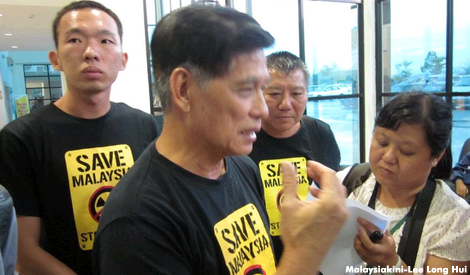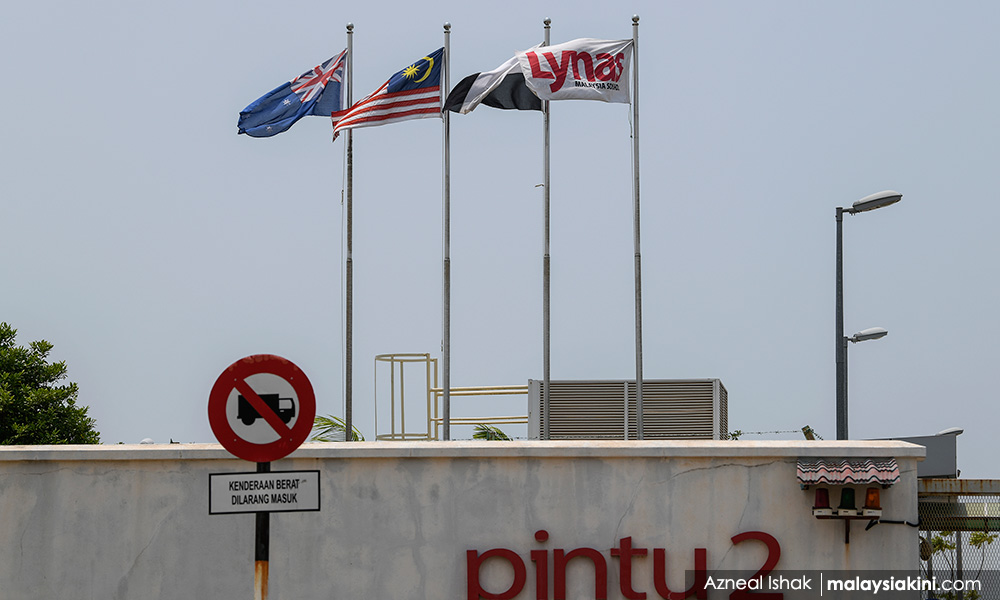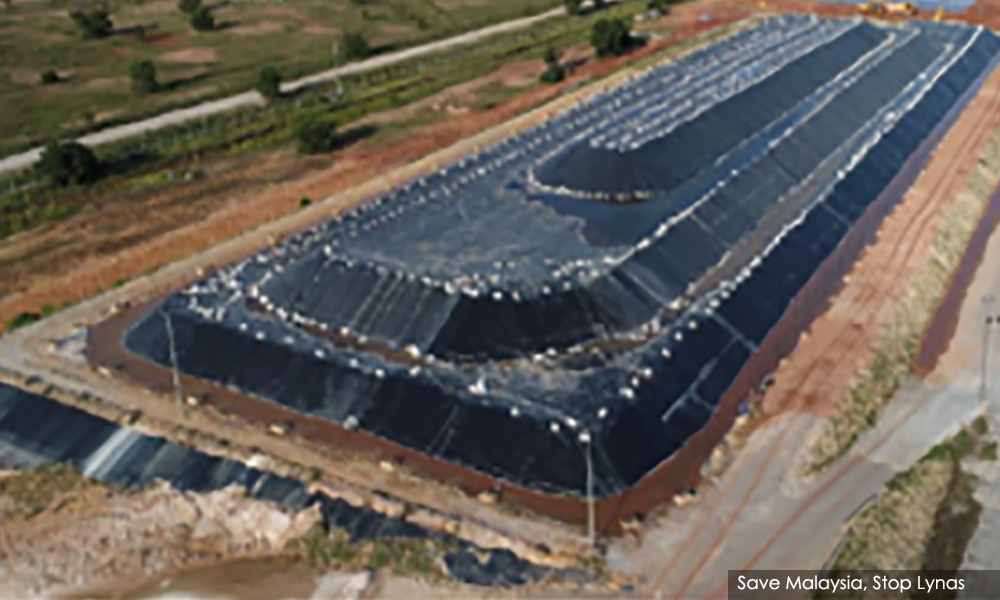
Department of Environment (DOE) needs to explain its reason in approving an environmental impact assessment (EIA) report for the Lynas rare earth plant to build a nine-floor tall landfill to house its scheduled waste.
This is according to Save Malaysia Stop Lynas chairperson Tan Bun Teet (above) who disagreed with Lynas' proposal to locate a 39-hectare piece of land at the back of the rare earth plant to house its million-tonne neutralisation underflow (NUF) residue.
"DOE has the obligation to explain to the people why it approved the EIA report and needs to reveal the 68 conditions imposed on the Australian miner," said the retired teacher-turn-environmentalist.
"After Lynas submitted its EIA report to the DOE for approval, we also wrote in our views on the matter. We wish to know if our views have been accepted and reflected as part of the conditions and this would better ensure Lynas fulfills all the conditions," he told Malaysiakini.
The landfill is meant for Lynas to put its NUF residue, which was classified as scheduled waste, for the next 10 years and cover them properly, he said.

Malaysiakini reported that the DOE had granted conditional approval to the EIA report on NUF residue.
In an email to Malaysiakini, the DOE said these conditions include limiting the NUF secure landfill to a height of 30m from ground level, excluding its "capping", which is approximately the height of a nine-storey building.
The DOE said Lynas should obtain written approval before constructing the landfill, and secure a licence to dispose of scheduled waste before beginning the landfill's operations.
DOE also instructed Lynas to come up with a management plan on how to reuse the NUF residue as raw material so the landfill will not be overfilled.
The department said it approved the EIA report on the secure landfill for NUF residue after studying its impact on the environment.
The approval letter for the EIA report was inked on May 23, together with 68 conditions, after the matter was discussed at the EIA Technical Review Committee comprising several relevant government agencies, said the DOE.

Tan said the authorisation is like stretching out a helping hand to Lynas to have a cheap way to store its residue.
"This is the kind of treatment that other factory operators would not have," he said.
It is not suitable for Lynas to pile up its NUF residue to nine-floors high as there is underground water one metre below , and dust residue may fly away and cause pollution to the surrounding area, according to Tan.
"This will pose a huge threat to the environment," he said.
He claimed that the NUF residue had been accumulated on open land at the back of the Lynas plant, and he urged the government to go on the ground to check out the situation.
The EIA report admitted that the landfill may impact the environment, but said the "potential impact to the surrounding environment is predicted to be minimised and mitigated to within acceptable levels, and would comply with the stipulated environmental standards and guidelines".
"With careful planning and adherence to sound mining practices and design, combined with prudent implementation of all recommended mitigating and control measures, the proposed project will be able to reduce the predicted adverse impacts to a low level of significance.
"The project is expected to have important economic benefits, both locally and regionally," according to the EIA report. - Mkini



No comments:
Post a Comment
Note: Only a member of this blog may post a comment.